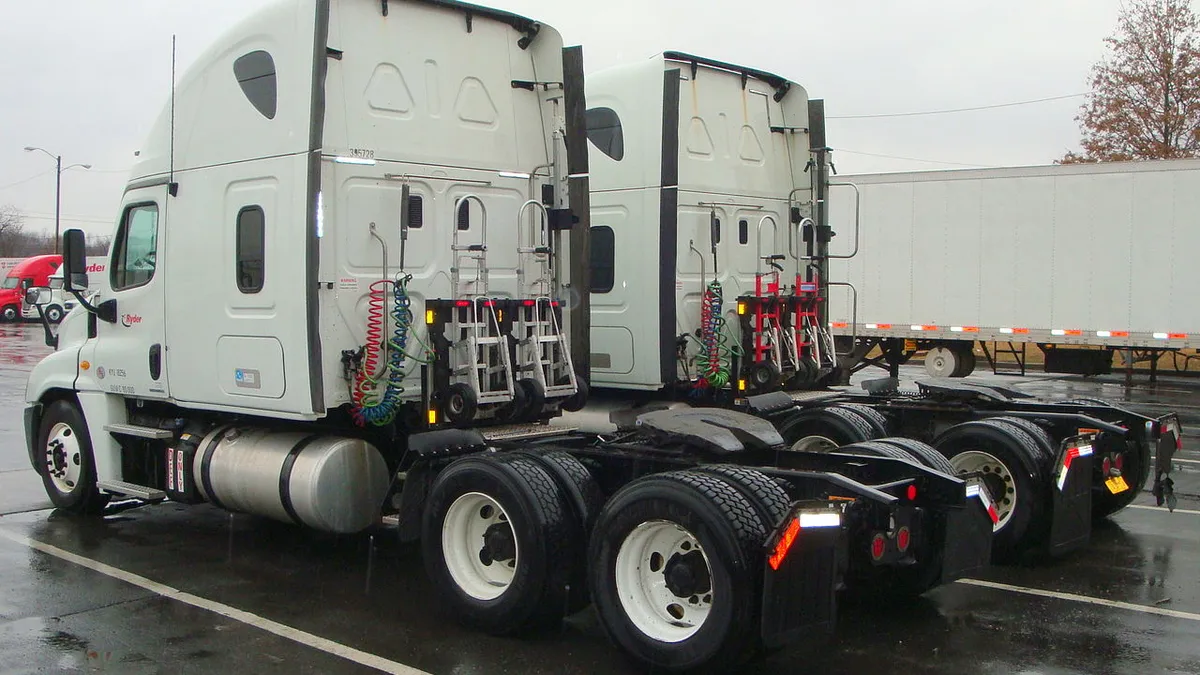Dive Brief:
- A group of California delivery workers contracted to provide services to either MXD Group or Ryder, or both, have asked a federal judge to sign off on a $5 million settlement to resolve misclassification claims brought against the companies (Kimbo v. MXD Group Inc., et al, No. 2:19-cv-00166 (E.D. Calif. Aug. 3, 2020)).
- The class action involved more than 300 "Motor Carriers," who contracted directly with the companies and more than 600 "non-carriers" authorized to assist the Motor Carriers but who did not contract directly with the companies. The workers' complaint alleged that MXD Group and Ryder denied them employment rights and benefits by misclassifying them as independent contractors rather than employees.
- The $5 million deal includes $3.4 million for class members and a $100,000 claims compensation fund. A Ryder spokesperson told HR Dive that the company does not comment on pending litigation.
Dive Insight:
The delivery workers' misclassification claims were brought in part under California Labor Code, which prohibits any person or employer from willfully misclassifying individuals as independent contractors.
Worker classification has recently emerged as a high-profile employment law issue in the state thanks to a 2019 law that codified a test, known as the "ABC" test, through which state regulators determine whether a worker has been properly classified as an independent contractor. Gig economy companies have been a key target of misclassification suits in the state; late last month, San Francisco's district attorney sued on-demand food delivery service DoorDash, alleging that the company misclassified couriers as independent contractors. DoorDash told HR Dive that the suit "seeks to disrupt the essential services" its delivery app workers provide.
But the federal Fair Labor Standards Act (FLSA) also prohibits misclassification. A U.S. Department of Labor (DOL) fact sheet on the FLSA states that the act of signing an independent contractor agreement does not make an employee an independent contractor. Employers also may not misclassify an employee for any reason, even if the employee agrees, according to DOL. In 2019, an Alabama federal district court held that a signed independent contractor acknowledgment form wasn't enough for an employer to overcome a delivery driver's claims that he was an employee.
Adding to the compliance risk for employers is the possibility that workers may not understand the distinction between independent contractors and employees. A January survey of hourly workers by on-demand staffing technology platform Bluecrew found more than half of respondents said they did not know, or could not accurately identify, the benefits to which independent contractors are entitled. But 65% of salaried workers surveyed by Bluecrew said they knew the difference between being a W-2 employee and a 1099 independent contractor.














